If you own a swimming pool or spa, you know how important it is to maintain water quality for a pleasant, healthy swim. There are several water quality testers on the market. The most common are disposable test strips, electronic testers or connected probes. In this article, we'll look at the advantages and disadvantages of these solutions.
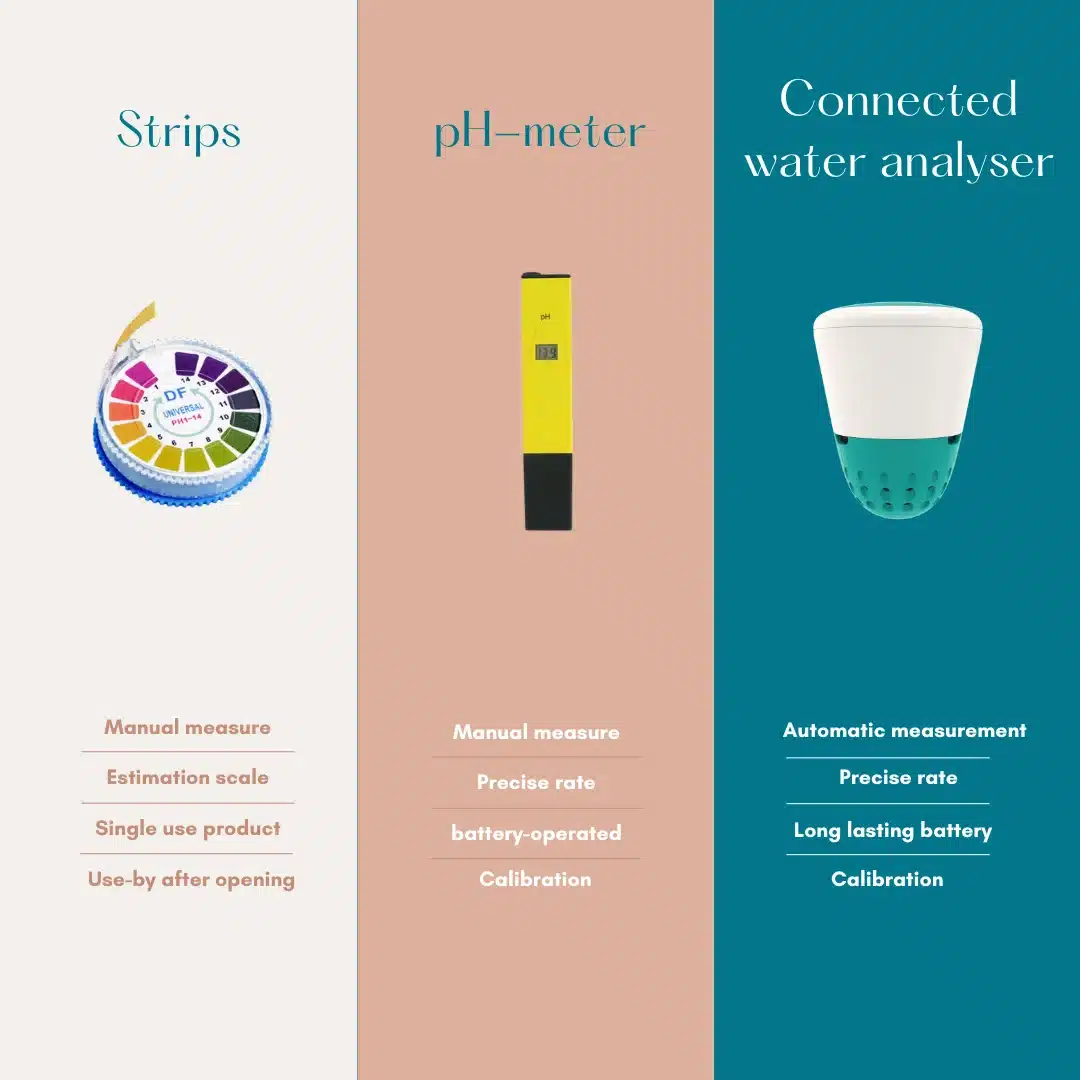
The pH balance in your pool or spa is of paramount importance because of its impact on pool disinfection. The pH balance also influences the disinfectant's ability to effectively kill bacteria and harmful organisms in the water More info about pH here .
To test the pH of your pool or spa water, there are two main categories of testers. Chemical testers, such as test strips, and electronic testers, such as pH meters or connected probes. Here are their advantages and disadvantages.
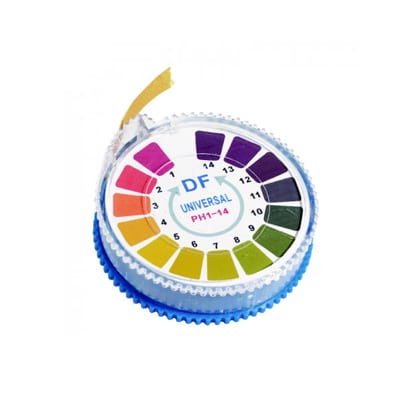
Test strips are disposable analysis tools that contain chemical reagents sensitive to various pool water components, such as pH.To use them, dip the test strip into your pool or spa water and wait for the chemical reagents to change color to indicate component levels.
As you can understand, test strips are fairly reliable and inexpensive tools. However, reading the result is an interpretation of the color indicated, so it's not a very precise instrument. If your water needs chemical treatment, it will be difficult to know the effective dosage of product to add. As a result, you run the risk of over-consuming chemicals or carrying out ineffective treatments. Finally, be careful about the strips you buy. You need to choose a test strip reference based on the type of water treatment you want to use (chlorine, bromine or active oxygen, salt).
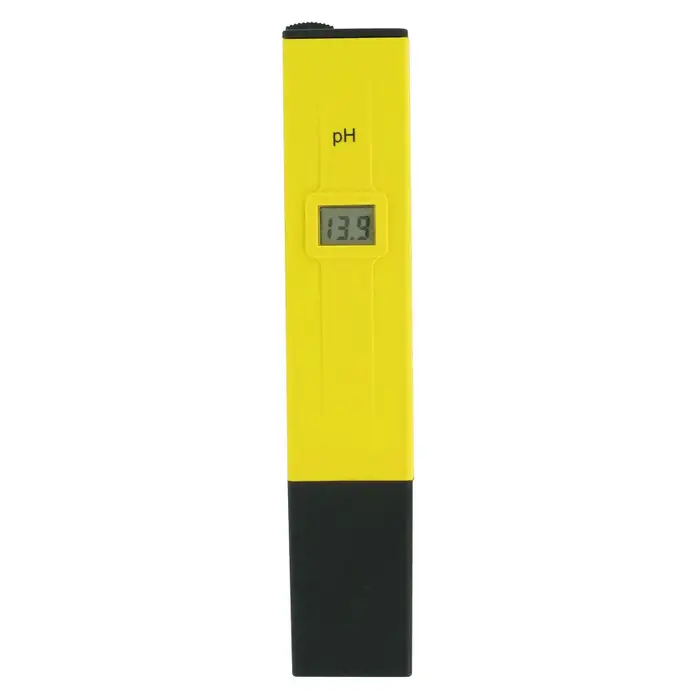
Electronic testers or pH meters operate with an electrode tip and transmit information either on a dial segmented by different colors or on a digital display. Very simple to use, simply dip the probe manually into the pond water to measure the pH of your pond water.
The precision of the results obtained with a pH meter and its price make this instrument a good ally for controlling the water balance in your pool or spa. However, to get a reliable result, you need to immerse the probe properly. However, unlike connected probes, measurements are taken manually and do not indicate the dosage of chemicals to be added if your water has a pH problem.
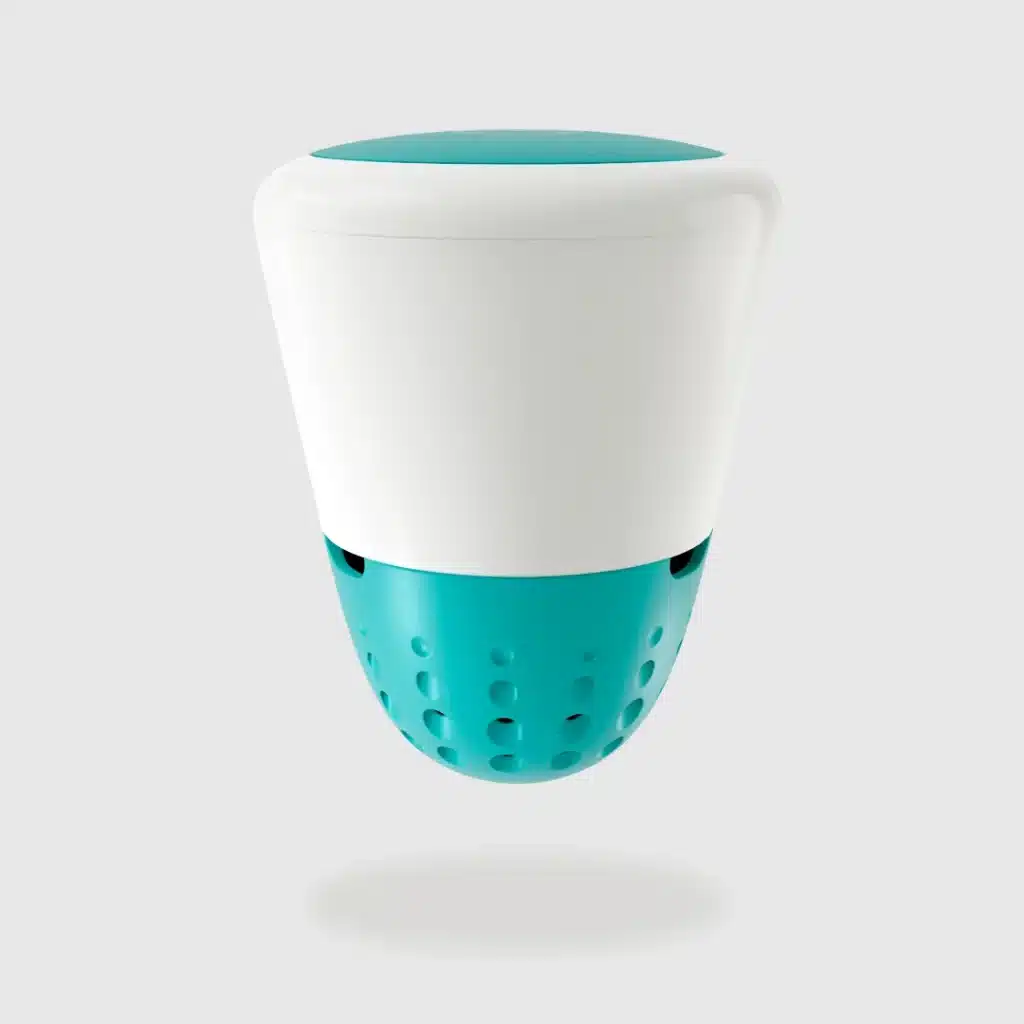
A connected pH probe is a smart equipment that uses technology to analyze pool or spa water with great precision. Results are displayed directly on a smartphone, making reading results easier and more accurate.
To conclude this article, remember that measuring the pH level of your pool or spa with a probe is far more accurate than with test strips or an electronic tester such as the manual pH meter. What's more, connected devices like ICO offer a much broader service than just measuring water quality. They also give recommendations for treatment dosages, when your pond water needs it!
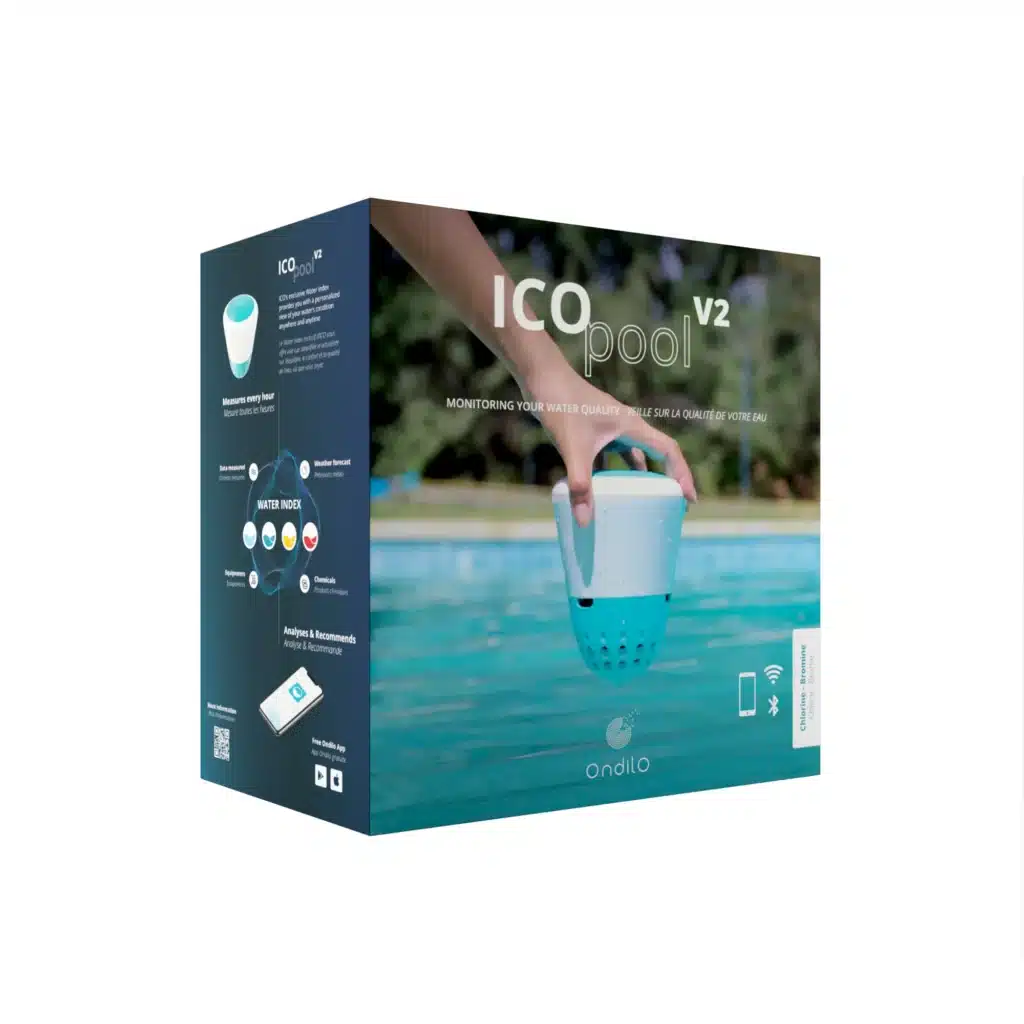
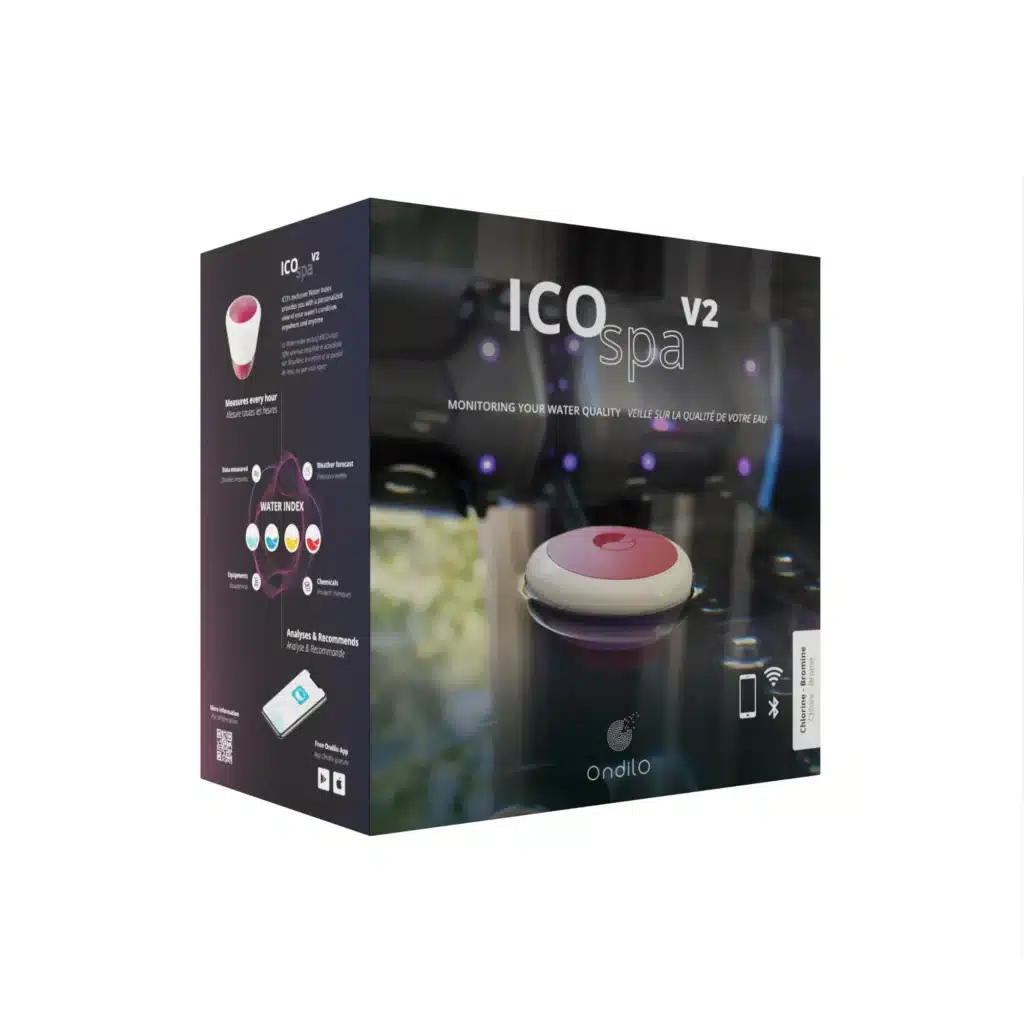
| Cookie | Duration | Description |
|---|---|---|
| cookielawinfo-checkbox-analytics | 11 months | This cookie is set by GDPR Cookie Consent plugin. The cookie is used to store the user consent for the cookies in the category "Analytics". |
| cookielawinfo-checkbox-functional | 11 months | The cookie is set by GDPR cookie consent to record the user consent for the cookies in the category "Functional". |
| cookielawinfo-checkbox-necessary | 11 months | This cookie is set by GDPR Cookie Consent plugin. The cookies is used to store the user consent for the cookies in the category "Necessary". |
| cookielawinfo-checkbox-others | 11 months | This cookie is set by GDPR Cookie Consent plugin. The cookie is used to store the user consent for the cookies in the category "Other. |
| cookielawinfo-checkbox-performance | 11 months | This cookie is set by GDPR Cookie Consent plugin. The cookie is used to store the user consent for the cookies in the category "Performance". |
| viewed_cookie_policy | 11 months | The cookie is set by the GDPR Cookie Consent plugin and is used to store whether or not user has consented to the use of cookies. It does not store any personal data. |